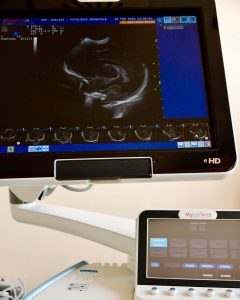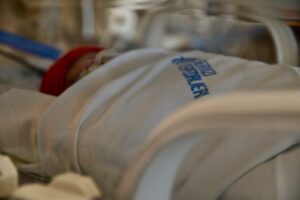Oral and perioral sensorimotor stimulation to optimize feeding in preterm infants: parent and health professionals role in neonatal intensive care unit
Pre-term infants, due to their neurological, respiratory and oral-gastrointestinal immaturity, are often unable
to be effectively fed by mouth. This difficulty manifests itself with underdeveloped and exhaustible sucking, immature swallowing, poor coordination of sucking-swallowing-breathing, and presence of sensorimotor dysfunction. The impossibility for the baby to be adequately fed in a natural way by breast or bottle often results in extended use of nasogastric tube, delayed discharge, and prolonged family stress. In addition, feeding problems left unresolved can cause various difficulties that become evident later during the child’s growth. For example, problems relating to food rejection or selectivity, delay in growth and in development of other oral motor behaviors such as babbling (the phase preceding the acquisition of first words, when the child experiments the sounds of language) and verbal expression.
Various authors, therefore, highlight the importance of an adequate oral and perioral sensorimotor stimulation, in other words, the execution of delicate touches and moves made with the littlefinger in the lips area and inside the baby’s mouth, in order to reduce time of tube feeding and increase oral feeding ability. The stimulation program should precede the oral feeding introduction and should be performed when the baby is still tube feeding. In this manner, oral motor capacity can correctly develop before any potential feeding difficulties arise.
The PIOMI (Premature Infant Oral Motor Intervention, Lessen 2011) is a stimulation program that prescribes delicate touches and slight pressure moves inside and outside the mouth, useful to activate muscular contraction. This is done with the aim of improving oral and perioral structures strength (cheeks, lips, gums, tongue and palate) and therefore the development of the related neural cerebral ducts involved in feeding. The stimulation lasts a total of 5 minutes and is performed once a day for 7 consecutive days.
Studies that focused on the PIOMIdemonstrated its efficacy, evidencing a reduction of 5 days in the time necessary to achieve complete oral feeding, and a decrease of 3 days in the time needed for hospitalization.
Pilot study
This pilot study has the aim to evaluate whether the sensorimotor stimulation can be performed by parent/caregiver in order to involve them even more in the care of their baby, inside the Neonatal Intensive Care Unit. In this way parents can help their baby to develop the oral motor competencies necessary for an adequate oral feeding, reducing the time of “Os/gavage” (the time that elapses between the introduction of oral feeding, while the child is still being tube fed, and the achievement of a complete oral feeding by breast or bottle).





